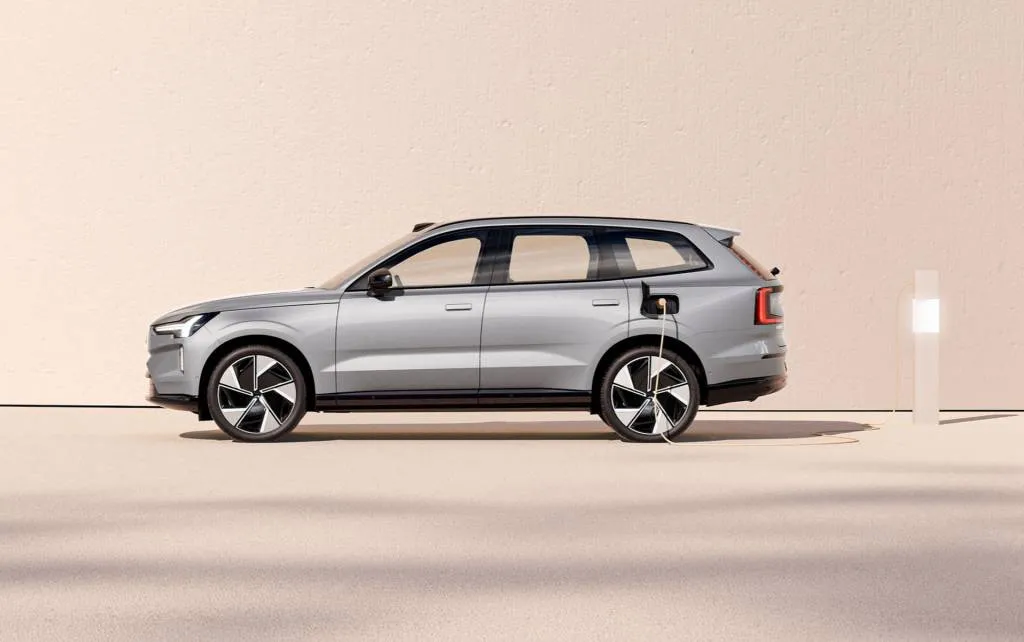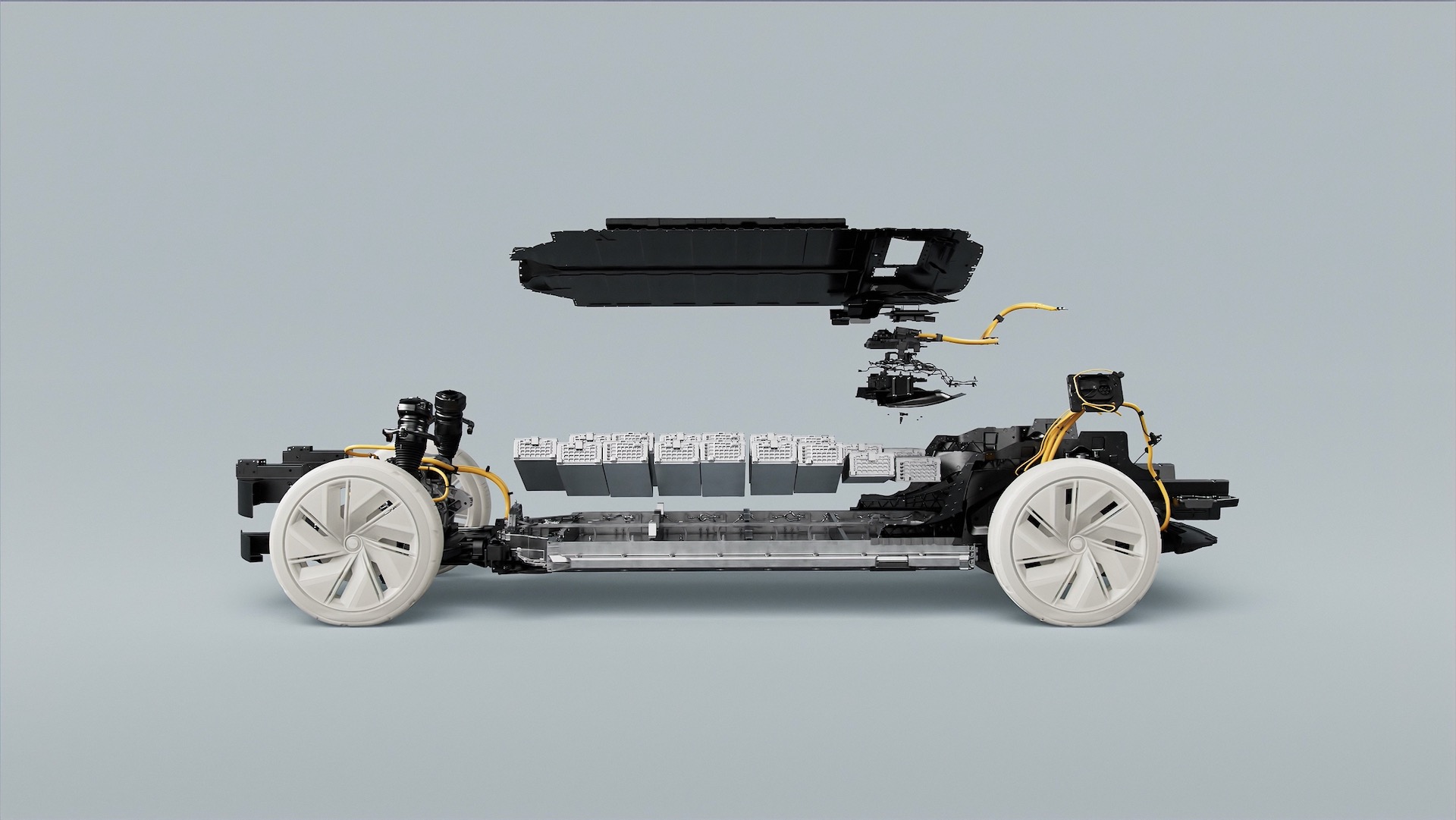[ad_1]
Volvo desires to hurry EV charging occasions by counting on software program moderately than upgrades to batteries and different {hardware}.
The automaker on Monday introduced a partnership with U.Okay.-based Breathe Battery Applied sciences to entry that firm’s “algorithm-enabled charging software program” with its battery administration programs—with the purpose of optimizing charging efficiency.
Testing has indicated that this software program may cut back the time to cost an EV battery pack from 10% to 80% by 15% to 30%, relying on the pack, whereas sustaining pack power density and vary, Volvo mentioned in a press launch.

Volvo EV battery modules
Software program developed by Breathe, which is receiving funding from the Volvo Automobiles Tech Fund, can extra carefully handle charging in comparison with present stepped charging protocols, in response to Volvo. Whereas stepped charging depends on preset guidelines, Breathe’s algorithms can handle charging based mostly on real-time evaluation of battery well being, permitting for extra flexibility and doubtlessly faster charging, Volvo claims.
This is not the one form of charging innovation that is extra research-and-algorithm based mostly than hardware-based. College of California Riverside researchers a number of years in the past instructed that by carefully following the inner resistance of battery cells, they might make packs final far longer.
Upgrading battery packs and switching battery cells prices cash, and upgrading battery cooling prices effectivity. That is left automakers pondering some revolutionary workarounds, at the very least in patent type. Rivian, for example, thought of blowing cool air below its vehicles.

2025 Volvo EX90
In the meantime, Toyota, Nissan, and a variety of cell makers are engaged on solid-state battery tech that will additionally enable such super-fast charging. And Volvo’s cousin Polestar is testing solid-state tech that might enable 100 miles restored in 5 minutes. However Lotus is amongst just some firms boasting DC quick charging above 400 kw with present liquid electrolyte battery codecs.
Volvo can be launching an power enterprise, and the upcoming EX90 is its first EV that may have all the mandatory {hardware} for bidirectional charging.
[ad_2]

